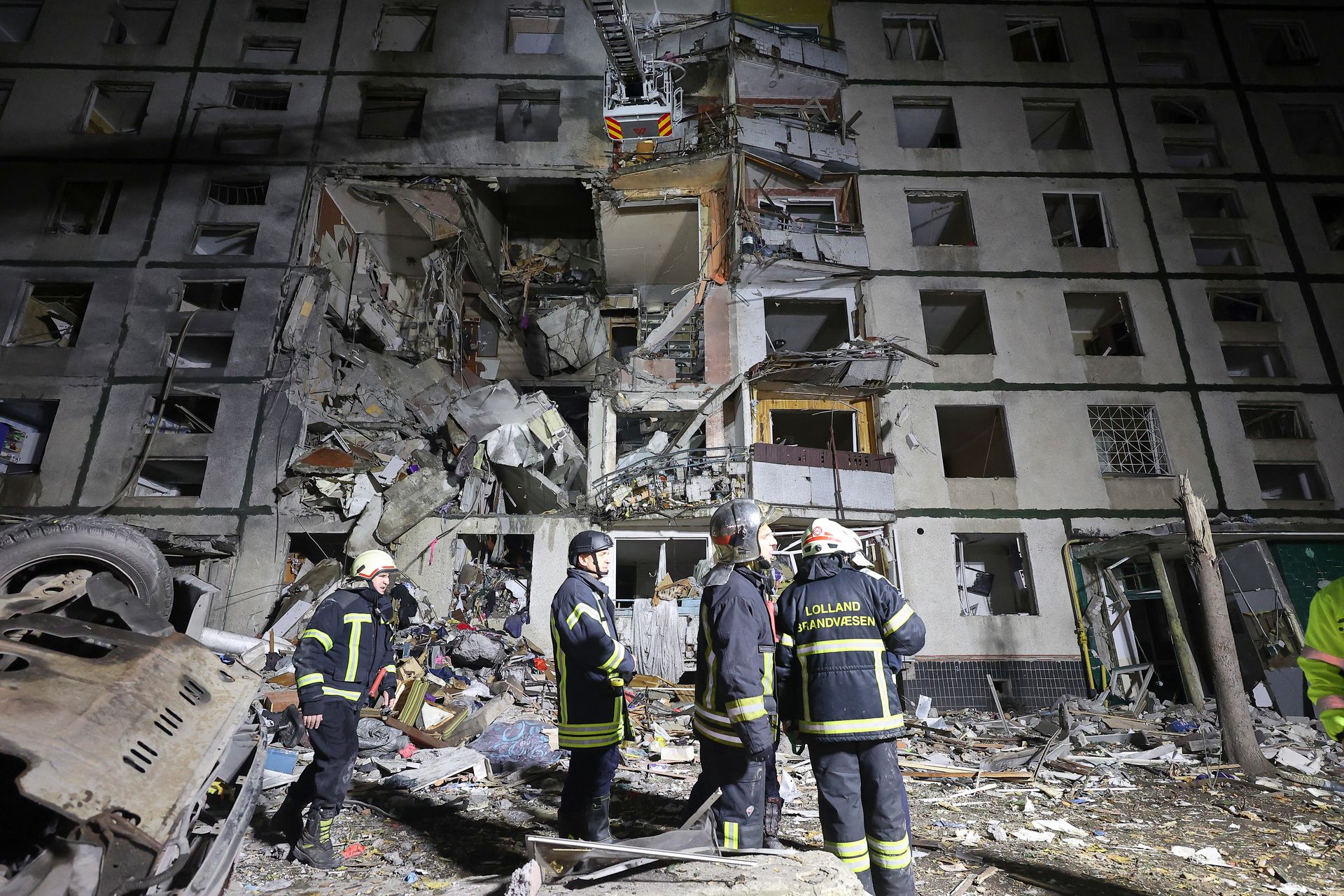'Putin is playing with nuclear fire' — Zaporizhzhia power plant blackout ends, but experts warn risks are far from over

A general view of the Russian-controlled Zaporizhzhia nuclear power plant in southern Ukraine on March 29, 2023. (Andrey Borodulin / AFP via Getty Images)
A month-long blackout at the Russian-occupied Zaporizhzhia nuclear power plant ended on Oct. 23, after suspected Russian sabotage disconnected it from Ukraine’s power grid.
But experts have told the Kyiv Independent it could have been repaired by Moscow in days, warned of serious future risks, and said Moscow could be planning further sabotage in order to connect it to Russia's power grid.
Russian troops reportedly struck a power line on Sept. 23, severing the plant’s connection to Ukraine’s electrical grid. As a result, the plant has been forced to rely on backup diesel generators to maintain critical safety functions and provide electricity.
Its six reactors were shut down a month after Moscow’s occupation began in March 2022, but the facility still requires electricity to maintain cooling and prevent a nuclear incident.
Greenpeace nuclear expert Jan Vande Putte said that although the situation is currently under control, it does not mean Russia will not escalate the situation at the plant further, as it still intends to connect it to Russia’s grid.
According to Vande Putte, the Dniprovska line which has been repaired "was only slightly damaged due to precise sabotage action, not destroyed," and could have been reconnected to the power plant "at any time, rapidly."
Another location, the Ferosplavna line, was shelled by Russia and remains under repair. It is severely damaged and restoring it will require time.
"There is a real risk that Russia will now hinder or avoid a reconnection of this double line," Vande Putte said.
"Our concern is that they will want to keep the power plant connection dependent on one single line in order to break it again in the coming couple of months when they see the next opportunity to break the connection and connect to the Russian grid," he added.
Ukraine’s Energy Minister Svitlana Grynchuk on Oct. 23 condemned Russia's actions, saying it "posed an unprecedented threat to nuclear and radiation safety not only in Ukraine but also across the entire European continent."
"The only way to ensure long-term nuclear safety is complete demilitarization, deoccupation of the Zaporizhzhia power plant, and its return to the full legal control of the Ukrainian operator, Energoatom," she added.
Future risks
Speaking about the potential connection to Russia’s grid, Najmedin Meshkati, a professor of civil/environmental engineering, industrial and systems engineering, and international relations at the University of Southern California, told the Kyiv Independent that "the consequences will be severe."
"Restarting and operating the plant under Russian pressure and control, given the facility’s deteriorating condition after three years and seven months of occupation, poses extraordinary risks," Meshkati said.
"Mr. Putin is playing with nuclear fire that will badly burn himself, Russia, and may engulf the entire region and Europe," he added.
IAEA ‘ceasefire’
International Atomic Energy Agency (IAEA) Director General Rafael Mariano Grossi, said on Oct. 23 that the Zaporizhzhia power plant "was successfully reconnected to Ukraine’s electrical grid (...) following repairs carried out under the protection of a local ceasefire negotiated by the IAEA and observed by its teams on the ground."

A monitoring mission from the IAEA has been stationed at the site since September 2022, but Russian authorities have frequently restricted its access.
Vande Putte said that Grossi has been supporting Russian disinformation, claiming the repair of the line was not possible without a ceasefire from both sides.
"There are not two sides, only Russian aggression, and Ukraine has never attacked this line. The images published by the IAEA (on Oct. 23) confirm our analysis that the damage to the Dniprovska line on 23 September was caused by Russian sabotage," Vande Putte said.
"We urge Mr Grossi to stop playing with the cards of Russia, because by doing so, he not only kept the Zaporizhzhia power plant off grid for 30 days, but he furthermore risks stimulating a similar or worse move by Russia in the coming months."
Rafael Grossi, the IAEA director general, visited Moscow on Sept. 26 to participate in Russia's World Atomic Week — which marked the 80th anniversary of Russia's nuclear industry — and met with the head of Russia's nuclear agency Rosatom.
Just days before the event, Truth Hounds and Greenpeace Ukraine published research about Rosatom's complicity in war crimes, including the detention and torture of staff at the nuclear power plant, adding to a growing risk of a nuclear disaster.











